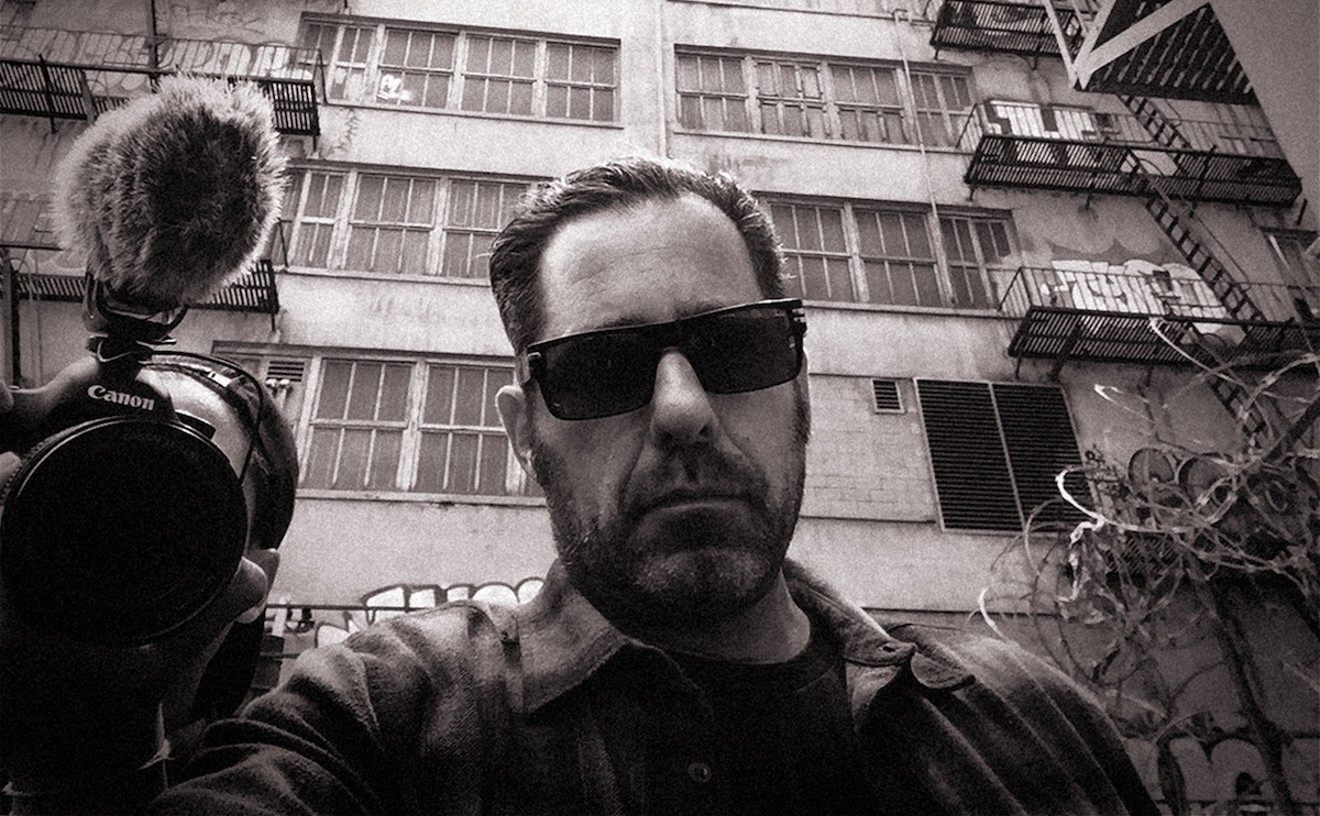"The play began in 1997," explains Villanueva, "when I decided to gather material from a lot of things happening around me -- several friends going through intense conflicts in their relationships. I started to have fun with it and I created a monster, meaning all of these different situations became one story about one couple."
Allá Afuera is definitively an actor's play -- a piece of theater designed to push performers to expand their craft. The first actress to perform the female role was Luz Marabel, who performed Rosie Inguanzo's adaptation of the monologue Malecon in Little Havana's Tower Theater last summer: "Luz's passion and strength on the stage inspired the creation of the character Vicky," says Villanueva. "I felt that her talent hadn't been fully realized yet and I think this role gave her the opportunity." Now, seven years later, the same thing is happening with Venezuelan-born actress Alexa Kuve. Kuve has performed in numerous Spanish telenovelas and on Miami's stages as well, but Villanueva sees the character of Vicky as a challenge the actress has yet to take on: "On TV you don't have the opportunity to explore a wide range of emotions because soap operas are one-dimensional. It's either good or bad. In theater you have the opportunity to work with subtleties."
Kuve is definitely up for the challenge. In 2001 she demonstrated her ability to play a strong female role with her ballsy portrayal of Felicia in La Ultima Parada, the Spanish adaptation of Tennessee Williams's A Streetcar Named Desire, directed by Rolando Moreno. Still Villanueva asserts that this will be a transition in the developing actress's career. "This play asks the actors to go into uncomfortable places emotionally and psychologically. It demands an emotional range and aptitude that pushes the actors to develop their resources. Although these characters are neurotic and over the top, they also are multidimensional."
Over the top may be an understatement. The dramatic situation: a barren stage, a bed, a man, a woman, and an age-old theme. "It's about a couple, Vicky and Rey [played by Villanueva], who want to separate," explains Villanueva, "but they can't because they still haven't fulfilled each other, especially sexually." Allá Afuera Hay Fresco is sexual co-dependency before the twelve-step program. It proposes to immerse actor and audience alike in the central moment of crisis -- a dramatic situation without an extensive plot, detailed setting, or host of characters to promise resolution. It's an explosion of desire, destructive impulses, regret, anxiety, and passion. The bare-bones structure of a dialogue-driven one-act creates a vehicle for intense interpersonal exchange, emotional extremes, and ultimately catharsis. As Villanueva describes, Allá Afuera is a kind of therapy for the actor: "It's a chance to use the character as a mask through which the actors can truly vent, rant, and explore their limits. Ultimately it should be an emotionally liberating experience for actor and audience alike."
Why pay $200 an hour for the couch when you've got the stage?
Besides numerous roles in theater, Villanueva is particularly known for his interpretation of Bobby in the 1996 movie Azúcar Amarga. Now studying film at the University of Miami and having recently completed production on two shorts, Villanueva is using his ability to move from stage to screen to enhance his creative skills in both genres. In fact he plans to eventually take Allá Afuera that same route: "Theater for me is like rehearsing a film so eventually, once I've seen it in 3-D [the stage], I will put in 1-D [the screen]. The theater is the actor's most important medium. Movement, projection, contact with the audience -- these are all tools that the stage forces you to hone, whereas in film, the camera can often do a lot of the work for you." Either way, it will prove worthwhile to watch this artist as he explores the possibilities of both media.










